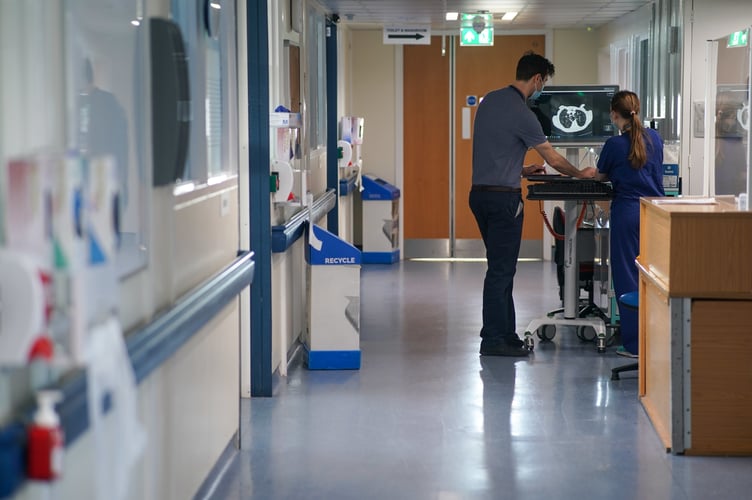Tens of thousands of patients were waiting for routine treatment at Royal Cornwall Hospitals in September, figures show.
One organisation has suggested winter pressures on the NHS are already kicking in.
NHS England figures show 47,543 patients were waiting for non-urgent elective operations or treatment at Royal Cornwall Hospitals NHS Trust at the end of September – up slightly from 47,174 in August, and 44,936 in September 2022.
Of those, 2,489 (5%) had been waiting for longer than a year.
The median waiting time from referral at an NHS Trust to treatment at Royal Cornwall Hospitals was 13 weeks at the end of September – the same as in August.
Nationally, 7.7 million people were waiting to start treatment at the end of September.
Professor Vivien Lees, from the Royal College of Surgeons of England, said: “Winter pressures have already started to affect the system.
“We are concerned that with increased demand, record staff vacancies and industrial action, this will all continue to hold back recovery efforts.”
Separate figures show 1.6 million patients in England were waiting for a key diagnostic test in September – the same as in August.
At Royal Cornwall Hospitals, 12,634 patients were waiting for one of 13 standard tests, such as an MRI scan, non-obstetric ultrasound or gastroscopy at this time.
Of them, 4,849 (38%) had been waiting for at least six weeks.
Other figures show cancer patients at Royal Cornwall Hospitals are not being seen quickly enough.
The NHS states 85% of cancer patients urgently referred by a GP should start treatment within 62 days.
But NHS England data shows just 62% of patients urgently referred by the NHS who received cancer treatment at Royal Cornwall Hospitals in September began treatment within two months of their referral.
That was down from both 65% in August, and 73% in September 2022.
Recent projections by the Health Foundation suggest waiting lists will top eight million patients next year, regardless of whether industrial action continues this winter.
Strikes by health workers have been blamed by politicians for contributing to these waiting lists – but the charity's analysis suggests they are responsible for just 3% of the current waiting list.
Despite the significant challenges faced by the NHS, the Health Foundation said it was possible to clear the backlog – although it will require "sustained focus, policy action and investment".
Professor Sir Stephen Powis, NHS national medical director, said the NHS was making progress despite pressures on the service, such as industrial action.
He said: "It is important to recognise the incredible efforts of staff who are seeing and treating many more people than pre-pandemic – delivering record numbers of diagnostic tests and checks, treating more people for cancer at an earlier stage, and completing thousands more routine procedures."
He urged members of the public to get flu and coronavirus vaccinations if they are eligible.




